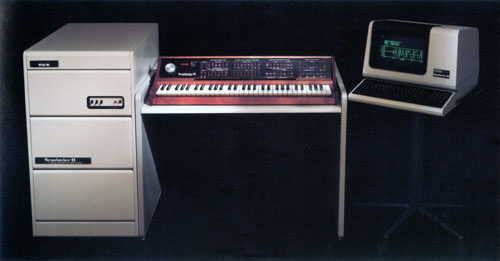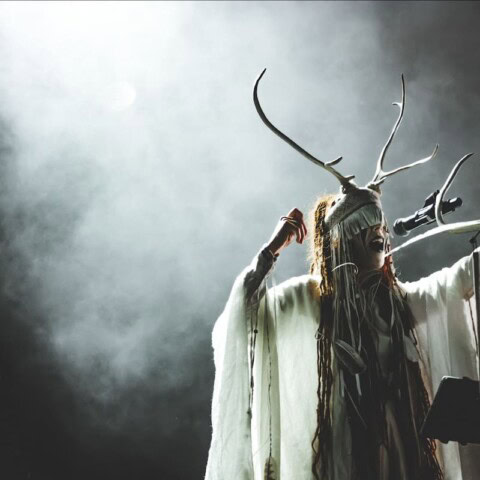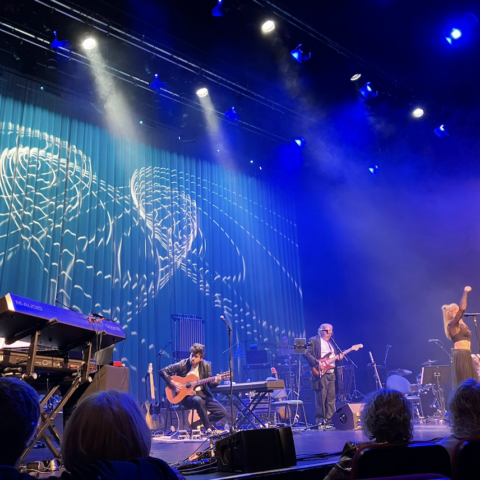Strings with your crackle and pop, Sir? Gary Steel explains why most of the time, adding an orchestra just doesn’t work.
 A FEW WEEKS back I found myself witnessing the live union of pop divas Anika Moa and Julia Deans with the Auckland Philharmonic Orchestra.
A FEW WEEKS back I found myself witnessing the live union of pop divas Anika Moa and Julia Deans with the Auckland Philharmonic Orchestra.
I’ve always loved orchestral pop – you know, those artfully arranged and overdubbed 1960s pop classics that judiciously integrate orchestral colourings – whether it’s the suburban neuroses of Glen Campbell’s ‘Galveston’, or the folk-pop bliss of the Mamas & Papas, or the creamy pop-soul of Dionne Warwick. Violins and horn sections and other respected instruments of the orchestra have been lending their dab hand to sophisticated pop for many decades, and few would deny the splendour that can result.
 I figured that not much could go wrong in a concert combining the considerable mechanical skills of the APO with two of our leading singer-songwriters on a selection of their respective pop hits and near misses. But I was wrong. The concert reminded me of how much I disliked the ENZSO project, where the NZ Symphony Orchestra delivered bloated, moribund versions of Split Enz songs that were already perfectly formed, and at their best when orchestrated by the group themselves.
I figured that not much could go wrong in a concert combining the considerable mechanical skills of the APO with two of our leading singer-songwriters on a selection of their respective pop hits and near misses. But I was wrong. The concert reminded me of how much I disliked the ENZSO project, where the NZ Symphony Orchestra delivered bloated, moribund versions of Split Enz songs that were already perfectly formed, and at their best when orchestrated by the group themselves.
There was nothing wrong with either Moa or Deans, although Moa’s voice seemed to have problems cutting through and asserting itself at least some of the time. Could it have been that her microphone was just not mixed loud enough, or did she have a cold? Despite this, they were both brilliant, doing turn-about on a selection of their tunes down the years, and throwing in a few nifty covers. While it seemed to take them both a few numbers (and in Moa’s case a few drinks) to get over first-night nerves, they rallied around, and it was particularly enchanting hearing them support each other on delicious harmony vocals. Moa never fails to have an audience rolling in the aisles with her specific brand of self-deprecating humour, but the surprise (for me, at least) was just how great and dramatic a vocalist Deans has turned out to be. Although she did perform her Fur Patrol hit ‘Lydia’, it was her long, ecstatic, almost middle-eastern sounding flights of fancy that not only demonstrated her powerful rock-operatic singing, but the emotional intensity behind the sound of that voice. [Can’t wait to hear her forthcoming album, We Light Fire].
 What a pity then, that the APO was on all but rare occasions left making redundant gestures. There were a few pieces where someone had clearly gone to the effort of carefully arranging them for larger ensemble, but most of it had the musty whiff of a student orchestra playing for parent’s night. I hasten to add that I’m not accusing the APO of performing poorly so much as suggesting that the reason those pop classics I mentioned right up at the top work so well is that they’re meticulously arranged. On top of that, one suspects that with no need to utilise a full orchestra at all times, they’re more inclined to figure out what will work, and what won’t, and make sometimes harsh decisions based on that.
What a pity then, that the APO was on all but rare occasions left making redundant gestures. There were a few pieces where someone had clearly gone to the effort of carefully arranging them for larger ensemble, but most of it had the musty whiff of a student orchestra playing for parent’s night. I hasten to add that I’m not accusing the APO of performing poorly so much as suggesting that the reason those pop classics I mentioned right up at the top work so well is that they’re meticulously arranged. On top of that, one suspects that with no need to utilise a full orchestra at all times, they’re more inclined to figure out what will work, and what won’t, and make sometimes harsh decisions based on that.
Up in the Circle of the Auckland Town Hall, at least, it sounded more often than not like the orchestra was lagging behind the beat, and much of the time, because Moa and Deans had their own small band on stage, good portions of the orchestra were either sonically impaired or completely inaudible.
I wouldn’t argue against the contention that during the concert, there were moments where the sheer bombastic power of the orchestra sent a thrill through the room, but even those moments felt kind of wrong, like they belonged to a different gig, in a different room, and didn’t quite match the beats, or the tenor of the songs.
While some of Deans’ songs have an almost gothic darkness and therefore, are more suited to the pomp of an orchestra, Moa’s songs are curvaceous, sweet wee things that don’t respond well to the bludgeoning treatment. Not that it was all bludgeoning, but neither did the orchestra quite do the business with its creamy string section or its martial horns – it all sounded a bit half-assed and under-rehearsed.
 I think it’s time to put to bed this idea that pop and full Philharmonic orchestra automatically make for a superior night’s entertainment, or a useful union. We might now (hopefully) be past that moment in history where art music and pop culture are viewed as two completely different and incompatible beasts, but somehow, there’s still a spurious undertow in events like this that songwriters like Moa and Deans aren’t worthy of serious consideration unless they’re bestowed with the mana of a proper orchestra. Personally, as much as I love orchestral pop when it’s done well, this gig would have played out much better had the orchestra vanished, leaving just the two singers and their small backing band. GARY STEEL
I think it’s time to put to bed this idea that pop and full Philharmonic orchestra automatically make for a superior night’s entertainment, or a useful union. We might now (hopefully) be past that moment in history where art music and pop culture are viewed as two completely different and incompatible beasts, but somehow, there’s still a spurious undertow in events like this that songwriters like Moa and Deans aren’t worthy of serious consideration unless they’re bestowed with the mana of a proper orchestra. Personally, as much as I love orchestral pop when it’s done well, this gig would have played out much better had the orchestra vanished, leaving just the two singers and their small backing band. GARY STEEL
PS, Click here to read my interview with Julie Deans and Anika Moa.















